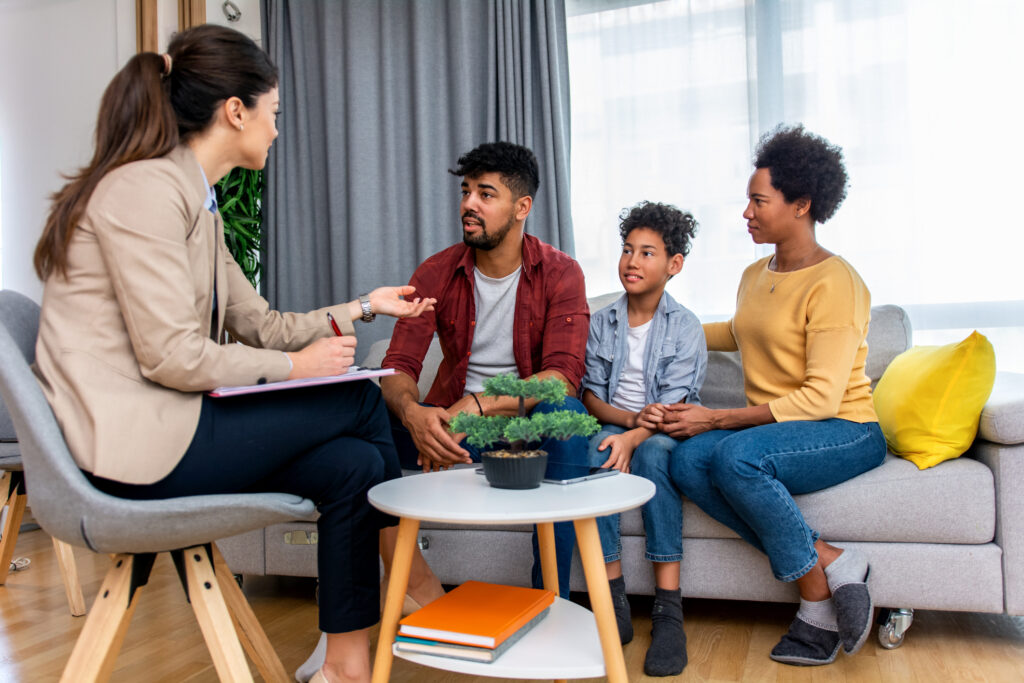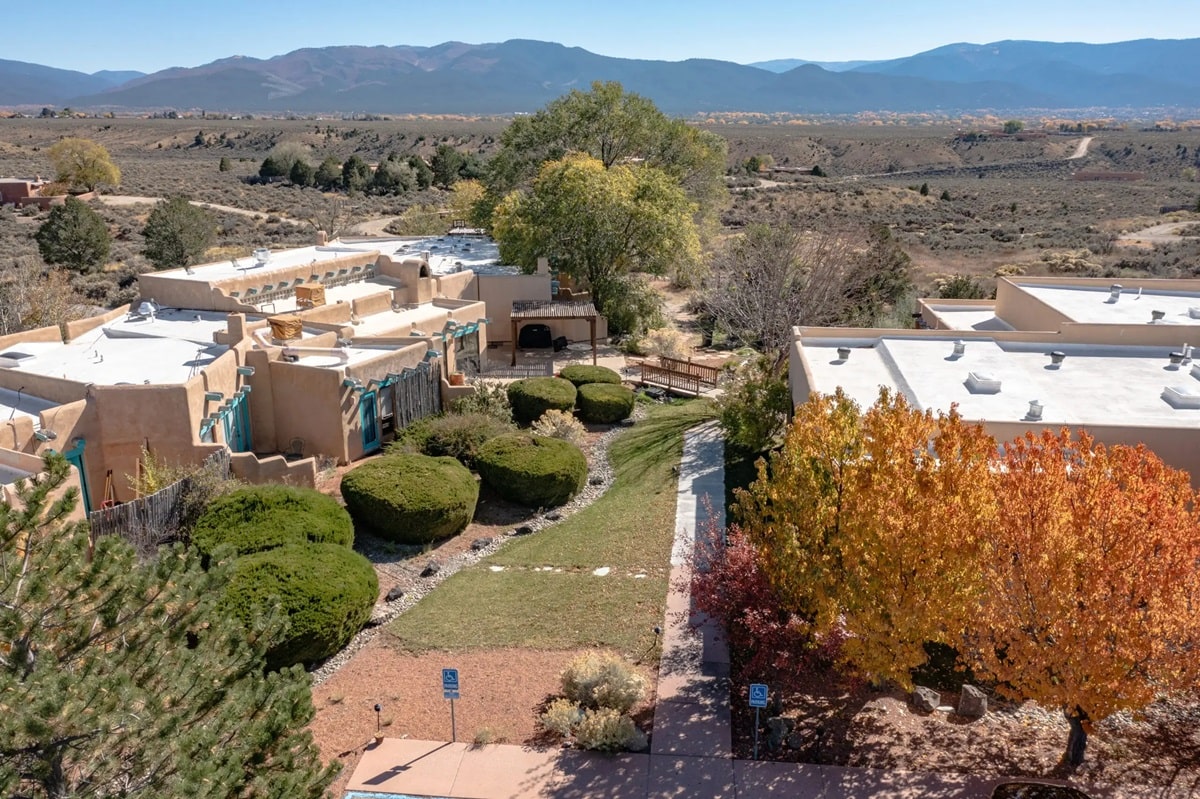Vista Taos Drug & Alcohol Addiction Treatment: A Comprehensive Family Recovery Program
Explore how Vista Taos’ family recovery program helps those battling addiction and their loved ones here.
Introduction: Understanding Addiction and Its Impacts
Addiction is like a trap. It lures individuals into its grip, leading to uncontrollable substance use despite its consequences. This destructive cycle affects not only the individual but their loved ones as well, highlighting the importance of the family recovery program.
But first, let’s go over the impacts addiction can have on various aspects of the individual’s life.

What Are the Physical Impacts of Addiction?
Addiction can cause a variety of physical side effects, such as:1
- Cardiovascular issues
- Changes in appetite; weight gain or loss
- Fatigue
- Increased heart rate
- Insomnia
- Kidney damage
- Seizures
What Are the Mental Impacts of Addiction?
Individuals struggling with addiction often experience psychological side effects, including:
- Anxiety
- Depression
- Difficulty concentrating
- Irritability
- Memory loss
- Mood swings
- Psychosis
What Are the Behavioral Impacts of Addiction?
Addiction can lead to behavioral changes, such as:
- Frivolous spending
- Intense urge to use the substance
- Legal issues
- Loss of interest in things previously enjoyed
- Risky behavior
- Struggle to fulfill responsibilities at work, school, or home
- Withdraw from family, friends, and social activities
How Does Addiction Impact Family?
The harm caused by addiction isn’t limited to the person experiencing it. Family and loved ones can also feel the impact, often experiencing:
- Anger
- Fear
- Guilt
- Helplessness
- Shame
But there ‘s hope. Addiction isn’t a life sentence. With the right help and support, individuals can break free from its hold and regain control of their lives.
A family recovery program, like the one offered at Vista Taos Renewal Center, acts as a support system. It can help individuals and their loved ones navigate through the complex journey of recovery.
Family: More Than Just Relatives in Addiction Recovery
When we hear “family,” we often think of the people we’re related to by blood. But when we talk about overcoming addiction, “family” has a more symbolic meaning and can include the following:
- Children
- Close friends
- Extended family members
- Mentors
- Parent
- Pets
- Siblings
- Significant others
Why Is Family Involvement Important?
Addiction impacts everyone close to the person fighting it, not just their blood relatives. And because of that, everyone involved can help with recovery. Research shows that hope, involvement, and support from family members can improve treatment outcomes.2
How Can a Family Recovery Program Help?
Family recovery programs understand the importance of a healthy support system. They know recovery isn’t just about the person beating addiction alone.
Recovery is about fixing relationships that addiction might have broken. It’s about ensuring everyone feels supported and heard while working towards one goal—getting better.
So, a family recovery program is a full-circle approach that helps everyone touched by addiction. A family recovery program builds a supportive environment that encourages recovery by involving everyone important to the person.
What Is a Family Recovery Program?
What does a family recovery program really entail? A family recovery program is like a group project—everyone has their role and works together to achieve recovery. This plan looks at how addiction affects the whole family and proposes ways to tackle it.
Family recovery programs utilize different therapies and treatment methods, with family therapy being the main focal point. This ensures the individual and their loved ones have all the tools necessary for a successful recovery journey.
What Can You Expect in a Family Recovery Program?
Here’s what you can expect in a family recovery program:
- Assessment: The first step in a family recovery program is an assessment. The individual and their family members meet with a counselor to discuss their unique situation, identify issues, and set goals for recovery.
- Therapy: Therapy sessions are a core component of a family recovery program. These sessions may include individual, group, and family therapy. The goal is to promote open communication, resolve conflicts, and strengthen relationships.
- Education: Education about addiction and recovery is another important element. Understanding the nature of addiction, its triggers, and coping strategies can empower individuals and their families to work together toward recovery.
- Support: Lastly, ongoing support is critical to the success of a family recovery program. This support may come from follow-up sessions, support groups, or other resources.
With a supportive environment and the right tools, a family recovery program can help individuals and their families overcome the challenges of addiction and embark on a journey toward recovery.
The Benefits of Family Recovery Programs
Family recovery programs play a significant role in addiction recovery. They involve various therapeutic approaches that focus not just on the individual struggling with addiction but also on their family members.
These programs can help by:
Education
These programs educate family members about the nature of addiction, its causes, effects, and the recovery process. This knowledge can reduce misunderstandings, blame, and stigma associated with addiction, fostering empathy and compassion.
Skill Development
Family recovery programs can help individuals and their family members develop new skills to support recovery. These skills can range from effective communication and conflict resolution to boundary-setting and self-care practices.
Healing Relationships
The therapeutic setting allows family members to express their feelings, fears, and concerns in a safe environment. It provides an opportunity to address and repair strained relationships caused by addiction.
Creating a Supportive Environment
Family recovery programs help families create a supportive home environment for the recovering individual. Families learn to avoid enabling behaviors and offer constructive support that encourages the individual’s recovery.
Mutual Support
These programs can connect families with others going through similar experiences. This provides a sense of community, understanding, and mutual support.
Preventing Relapse
By being involved in the recovery process, individuals and family members can learn to identify signs of potential relapse and understand how to respond effectively.
Addressing Codependency
Family recovery programs can help identify and address issues of codependency within the family dynamic, promoting healthier relationships.
Caring for Mental Health
Family recovery programs also acknowledge the emotional toll on family members and provide resources and support to ensure their mental well-being. It’s important to remember that self-care is essential for those supporting a loved one through recovery.
Addiction Recovery is a Familial Effort
Family recovery programs recognize that addiction is a family disease, affecting everyone involved. By integrating family into the recovery process, these programs aim to create a healthier dynamic that supports the individual’s long-term recovery and the well-being of the entire family.
What Are the Goals of a Family Recovery Program?
Family recovery programs aim to help addicted individuals and their families in many ways. Here are some key goals:
- Create Better Communication: One main goal is to help individuals and their families develop honest and open communication. When people communicate well, it can solve problems, build trust, and make relationships stronger.
- Mend Trust: Addiction can break trust in a family. Family recovery programs work to mend this trust and set a strong base for getting better.
- Strengthen Family Ties: By having the whole family be part of the recovery, these programs can make the family bond stronger. A supportive family can significantly improve treatment outcomes.
- Improve Understanding of Addiction: Family recovery programs want everyone to have a solid understanding of addiction. This knowledge can help the family support their loved one best during recovery.
- Teach Healthy Coping Mechanisms: These programs teach people and their families how to handle difficult situations. This can reduce the chance of returning to unhealthy behaviors and help keep the recovery going.
Guiding individuals and their families toward achieving these goals can improve treatment outcomes. They help create a sturdy foundation for the journey during and after treatment.
How Family Therapy Helps in Recovery
Family therapy is an essential component of addiction treatment, especially in a family recovery program. It is a type of psychotherapy that involves the family members and the individual with addiction.
Here’s how family therapy helps in recovery:
Provides a Safe Environment
The sessions provide a safe and structured environment where the individual and their family can share feelings, discuss problems, and develop solutions. Family therapy is a more targeted and personalized approach compared to family recovery programs.3
Teaches Addiction Education
Family therapy helps family members understand the nature of addiction, including its causes, effects, and recovery process. This understanding can reduce blame, anger, and other negative emotions that might have built up over time.
Improves Communication
Family therapy can help improve communication skills, allowing family members to express their feelings and concerns more effectively and helping the person with the addiction to better understand their impact on others.
Changes Dysfunctional Dynamics
Addiction often leads to dysfunctional dynamics within a family, such as enabling behaviors or codependency. Family therapy can help identify and change these patterns, promoting healthier interactions that can support the person’s recovery.
Teaches Coping Strategies
Family therapy can provide family members with coping strategies to deal with stress, avoid enabling behaviors, and help maintain their own well-being while supporting the individual in treatment.
Helps With Relapse Prevention
In family therapy, families can learn to recognize potential triggers and signs of relapse and understand how to respond effectively.
Family Therapy is Not Typically a Standalone Treatment to Recovery
While family therapy can be incredibly helpful, it’s typically part of a larger, comprehensive treatment plan. This may include individual therapy, group therapy, and support groups.
Overcoming Challenges: The Journey Towards Recovery
Recovering from addiction is a long path with many winding roads, both for the person with the addiction and their family. Knowing the challenges can help people better prepare and handle them.
Some common challenges individuals face before and during addiction treatment will be detailed below.
Admitting There Is a Problem
One of the most significant challenges of addiction is admitting there’s a problem. This is usually the first step to getting better, but it can be hard for the person with the addiction and their family.4
It’s important to be patient and understanding, and that’s where a program like the one at Vista Taos can help.
Being Afraid of Change
Another challenge is change. Even when change is a good thing, it can still be scary. The idea of living without drugs or alcohol can seem difficult for a person with an addiction. Having people to lean on, especially family, can make this a lot less scary.
Struggling With Communication
Talking to others and opening up is usually never an easy task. One of the main priorities in the family recovery program at Vista Taos is improving communication. Our therapists know how to help families communicate with each other and express feelings in a healthy way.
Knowing the challenges and how to handle them can make the road to getting better easier to travel. The program at Vista Taos is made to help with these tough parts directly, giving families the help, knowledge, and tools they need to beat these obstacles and recover successfully.
The Unique Family Recovery Program at Vista Taos
Vista Taos Renewal Center is a top-notch, family-owned addiction help center located at the base of the Taos Mountains in New Mexico. We understand that addiction affects more than just the individual. That’s why we offer a special way to heal through our family recovery program.
The experts at Vista Taos celebrate the uniqueness of each individual and their family by developing personalized treatment plans. They mix a variety of individual, group, and family therapy sessions. This ensures all aspects are addressed, improving recovery outcomes.
Vista Taos’ family recovery program also teaches families about addiction. We provide workshops for families to better understand addiction, how it affects them, and how to deal with it. They aim to give families the knowledge and skills to help their loved ones throughout their recovery journey.
Making Family Therapy Work: Tips From Vista Taos
To maximize the benefits of family therapy at Vista Taos, consider the following strategies:
- Keep an Open Mind and Attitude: Enter therapy with an open mind and a willingness to learn and change. This attitude can facilitate a more constructive and successful therapeutic experience.
- Be Honest: Be honest during therapy sessions. Honesty is key to addressing problems and finding solutions. If something isn’t working, or you’re struggling with a certain aspect of therapy, it’s important to communicate this.
- Actively Participate: Participate actively in the sessions. Ask questions, share your feelings, and engage in discussions. The more involved you are, the more you’ll gain from the process.
- Implement Learned Skills: Use the skills and techniques you learn in therapy in your everyday life. Whether it’s communication strategies, conflict resolution techniques, or stress management skills, practice them regularly.
- Stay Patient: Change takes time, and progress may be slow. It’s important to be patient with yourself and your loved ones and understand that setbacks are part of the recovery process.

Take the First Step: How to Start With Vista Taos’ Family Recovery Program
Embarking on a journey of recovery can be challenging, but it’s a journey you don’t have to make alone. Vista Taos is here to guide you and your family every step of the way.
Starting Vista Taos’ family recovery program involves a few simple steps:
- Reach Out: The first step is to reach out to Vista Taos. You can call our helpline for a free, confidential consultation.
- Assessment: A team of professionals will conduct an assessment to understand your unique needs and situation.
- Treatment Plan: Based on the assessment, the treatment team will develop a customized treatment plan for you and your family.
- Initiation of Therapy: Once the plan is approved, therapy sessions can commence, marking the beginning of the recovery journey.
Reach Out and Begin Healing
Don’t hesitate to take this first step toward recovery. Remember, healing takes time and patience but is entirely achievable with the right support and resources.
Vista Taos is committed to supporting you and your family toward a healthier, happier future. Reach out today and start your journey toward recovery and reconciliation.
Table of Contents
Ready to Renew Your Life and Well-Being?
Reach out to Vista Taos Renewal Center today and let us guide you toward sustainable recovery. We will help you heal from the addictions and substance use challenges that hinder you from leading your most fulfilled life through personalized, whole-person treatment.
Family recovery programs aim to help addicted individuals and their families in many ways. Here are some key goals:




